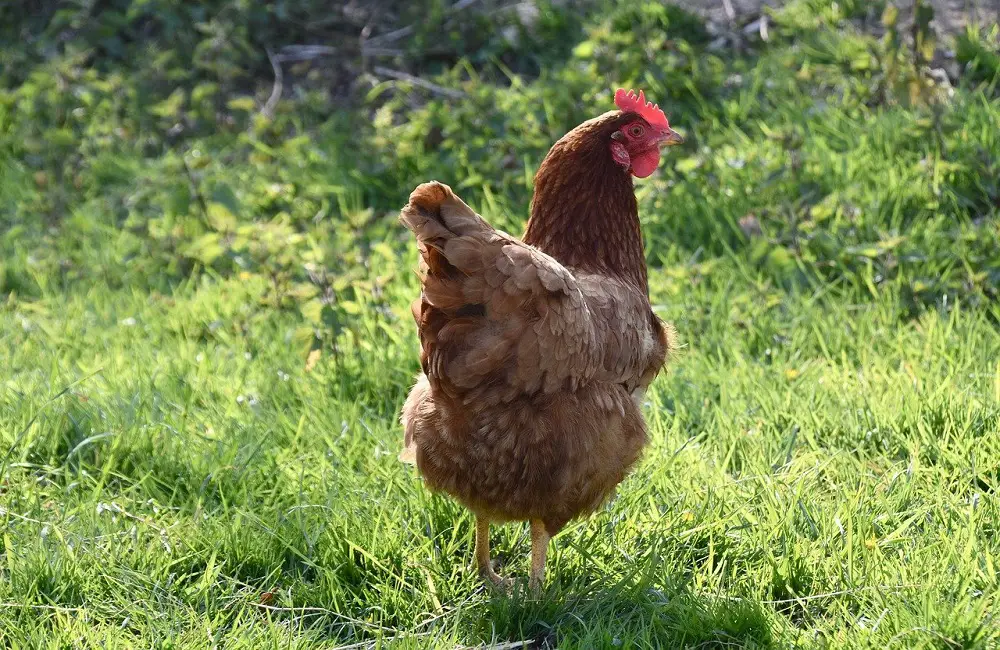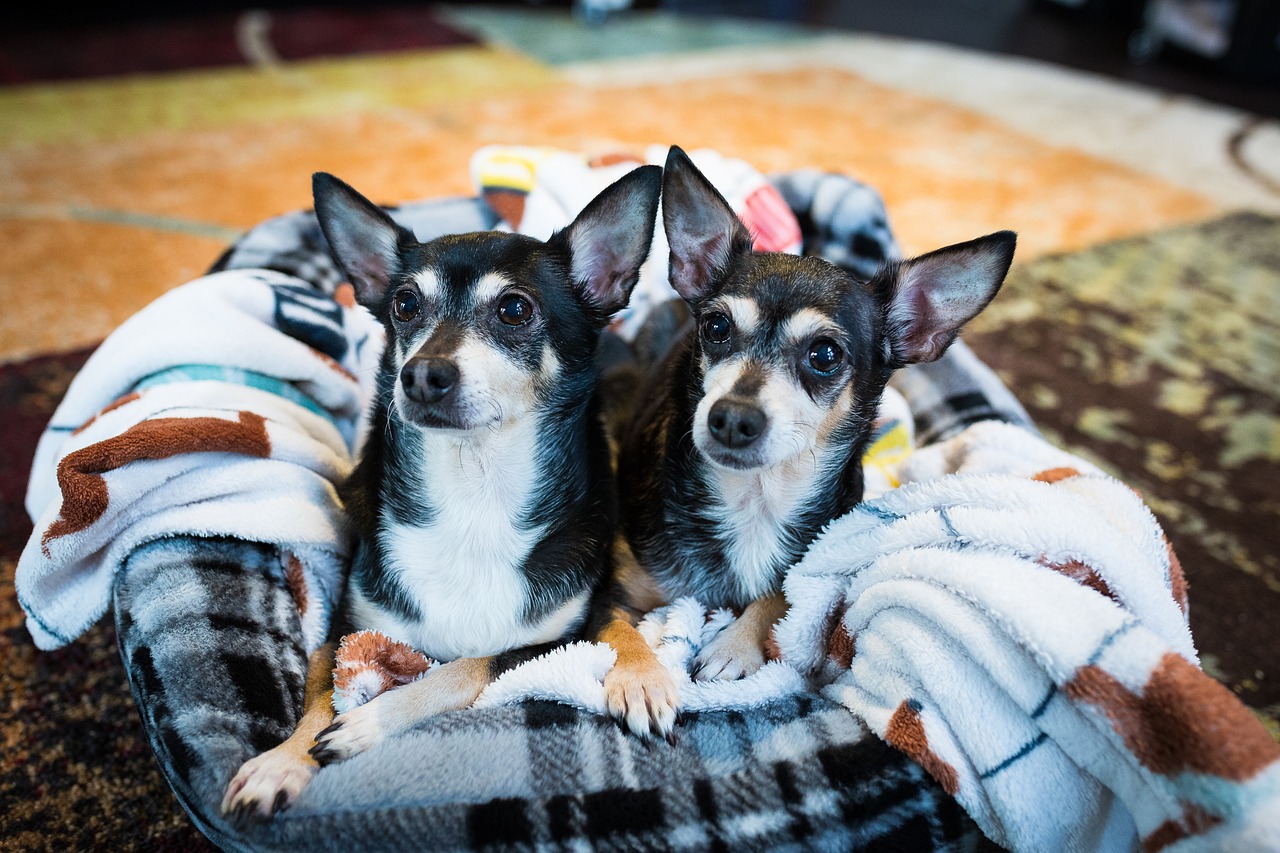If you have a pet rooster and hen, it is normal for you to see them mating because that’s what they do to reproduce and to produce eggs and other chickens for your farm.
However, there is one thing that bothers you as an owner when your rooster and hen are mating. Why the hell your hen runs before mating or if the rooster is chasing them to mate?
Why do hens run before mating? A hen runs before mating because she doesn’t want to be mated. However, roosters that are dominant don’t care what the hen wants. They will continue to chase the hen, and mate with her whether she likes it or not.
There is much more to learn about the chickens and how they mate. Let’s dig deeper about this topic for you to give more valuable information.
How Do Chickens Mate?
When you see your roosters dancing around your hens, or they chase your hens with their full power, it is a sure sign that another chick will add up into your family and the mating games are about to start!
Dominant roosters are the ones who can easily get a hen. However, even though a rooster is so dominant, there will be a time where his hen will try to act not interested and run away from the rooster before mating.
Let’s get to know what are the behaviors of the roosters and hens during mating season.
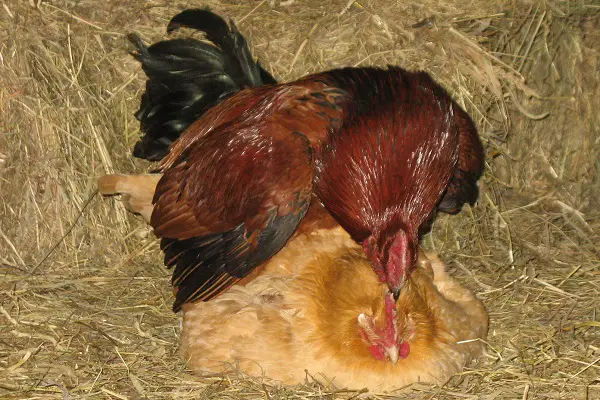
Rooster Mating Behavior
Like us men, roosters will always think about mating all the time because it’s their job to produce. They have to continue the lineage of their breed, that is why a rooster must have many chicks from his hens.
The mating and courtship behavior of a rooster will show during spring-time and much frequently during the winter season. You will also often see roosters performing different types of dance during mating season.
Roosters will do tid-bitting to get hens interested in him. Tid-bitting is a dance in which roosters make sounds. They move their head up and down like picking and dropping the food they found to tell the hens that he has food to offer.
Tid-bitting may not lead directly into mating or intercourse, but the hens will remember the rooster’s attentiveness. The rooster will often do this behavior to create an impression on the hens. Researchers have stated that hens prefer roosters that often perform tid-bitting.
If many roosters hang around and try to impress the hens, this can result in chest-bumping and fighting. Dominant roosters will fight, but weak roosters will back off and run away and try to retaliate another day.
The dominant rooster will try his best to prevent other roosters from mating with his hens. However, if the dominant rooster starts to feel old, he may be challenged by younger and tougher roosters.
Even though the dominant rooster will do everything to prevent the weak roosters from mating, weak or secondary roosters will still do some tricks to get the attention of the hens. Tid-bitting is the best but another dance works well too.
The other trick that roosters perform is the rooster dance. The roosters will perform a dance shuffling around the hen whom he selected to mate with. They will face their wing to the hen and drop it to the ground while he dances around the hen to show interest.
However, some roosters don’t give a damn thing about the whole courtship, and they straightly get into business!
During mating the rooster will step on the hen’s back, holding her neck or head feathers with his beak. He will steady himself using his feet and maintain his balance.
Don’t overreact during the mating process because it is normal to see some roosters fighting over a hen, and it could be more violent in most cases.
Also, roosters might look like he is attacking the hen during normal mating season. However, most roosters are gentle enough for the hen to tolerate the rough mating ritual. But still, always keep an eye on the aggressive rooster because they might injure the hen.
Hen Mating Behavior
The hens’ hormones rise when spring-time comes. They start finding a suitable mate, making a nest, laying and sitting on their eggs until they hatch. However, there are still some hens that will turn broody even during summer and winter.
The first thing hen will do is to find a suitable mate. If there is only one rooster in the flock then he is a lucky duck! However, if there are many roosters in the flock, they will be choosy.
Scientists have shown that hens can compare each rooster. Hens will choose a rooster that has the best comb and shiniest feathers. If the specifications of the rooster fit her fantasy, then she will choose that rooster.
Also, hens have the instincts to see if the rooster is dominant, have the ability to find food, can protect the flock, and will treat the hens well. They will also judge each rooster based on his abilities and not just his looks.
On some occasions, hens may change their mind quickly as to whom they will mate. They will accept the food or tid-bits from a rooster but will mate with another rooster!
Even though a rooster is dominant and considered as alpha-male, if a hen does not like the rooster much, she will not mate with him.
If a hen likes the rooster and has been decided to mate with that rooster, she will squat or crouch dropping her head and spreading her wings slightly to show that she submitted with the rooster.
Once the mating is done, and the hen starts to release eggs, she will start to sit on it until it has hatched. When the hen is sitting on her eggs, she will not allow any rooster to mate with her and will fight the rooster that will try to get into her.
We have two hens and one rooster in our backyard, and in my experience, during mating, the chickens tend to be noisy. My rooster tends to be noisy as an indication that he is ready to mate. Luckily, my rooster has two options so that he can mate with my two hens without any competition.
The Mating Mechanics
So the mating works like this:
First, the rooster will hop into the back of the hen. Then he will dip down his tail to the side of the hens to deliver the sperm.
After the mating is done, the rooster will actually move away and go back to business as nothing had happened.
The rooster has no penis, but he has a papilla inside his cloaca. The sperm will be delivered to the hen through the papilla.
One healthy and young rooster can mate between 10-30 times per day. He can deliver between 100 million – 5 billion sperm in the morning. When the rooster delivers the swimmers using the cloacal kiss, the hen must evert her cloaca/vent so that the sperms or swimmers will go to the eggs directly.
Once the sperm successfully swam into the oviduct, the sperm will fertilize the egg. The sperm can also be collected and stored in the walls of the oviduct, and it will be viable for four to five days and is capable of fertilizing the eggs successfully.
They store the sperms so that the hens do not need to mate again to fertilize additional eggs.
At What Age Do Chickens Start Mating?
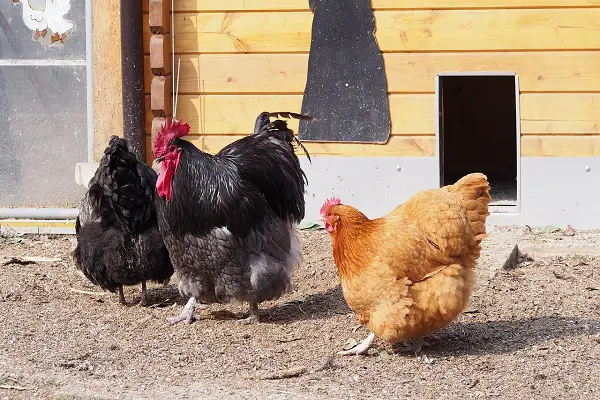
Mating of chickens is fun to watch, but when and what age do chickens start mating? At what age do roosters and hens begin to mate?
Rooster
At what age do roosters start mating? Young roosters or cockerels can start mating at 4 to 5 months of age. They reach sexual maturity at a young age, producing sperms, and they can act like a rooster.
They will start attacking the hens by grabbing the hen’s neck feathers and won’t let go. It could be loud, as I have said in my personal experience above.
Hen
At what age do hens start mating? Young female chickens or pullets begin laying eggs at around 18 to 21 weeks or eight months old. When the hens begin to lay eggs, she can begin mating and choose a rooster to mate with.
Hens can be choosy when they choose a mate. They look for the most dominant, beautiful, and powerful rooster. However, if there is only one rooster in the flock, then the hen has no choice but to mate with that rooster.
Why Do Roosters Faint After Mating?
Did you know that roosters can faint after mating, which could be funny to think, but it is not. There is a chance that a rooster can faint after mating because of several reasons. Also, the worst-case scenario that might happen after mating is that the rooster might die from mating!
But why do roosters might die after mating if it is just mating after all? And they just do one kiss then the mating is done, right? How could this happen?
Why do roosters faint or die after mating? Roosters can faint or die after mating if they put in lots of effort during mating. They will faint if they feel too tired, and there is also a chance that roosters might die after mating because of heart attacks.
Roosters that are not healthy have a chance to get a heart attack after mating. Old age and heredity is also a factor why roosters die or faint after mating. If your chicken is too old to mate, but they still force to mate, they might have a heart attack and can die from it.
Always check your rooster’s health, age, and past relatives before you put them in a cage with hens for mating. If your rooster has a relative in the past that has died because of mating, then it is not good for your rooster to mate.
On the other side, if your rooster has no past relatives that have died because of painting, then he is good to go to mate. However, always make sure that your rooster is healthy and not too old before they start mating.
Why Your Rooster Is Not Mating With Hens?
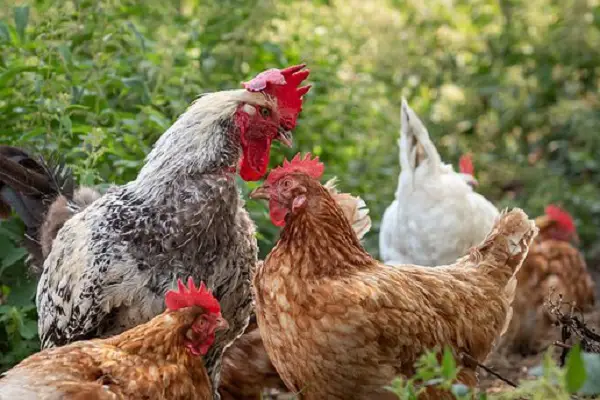
If you have hens and roosters in your backyard like me, then you probably notice something strange from your rooster. You observed that your rooster is not mating with your hens, and they look afraid when mating with your hens.
Roosters are inevitably stronger than hens, and they can force the hen to mate. But despite that, there can still be a scenario where your roosters will get afraid to mate or sometimes not mate with your hens.
Why do some roosters not mating with hens?
The two reasons why your rooster is not mating with hens is that your rooster might be afraid because the hen is much more dominant than him. The second is that roosters might get shy mating around people, so sometimes they wait for you to go inside the house before they start mating.
Roosters can also be shy, and they won’t mate unless you are not around. If your rooster is 1-2 years old, he should be at least trying to mate with other hens. Size shouldn’t be the reason why your rooster doesn’t like to mate with a hen because I have seen teenage roosters chasing full-size hens and forcing the hens to mate with them.
Final Verdict
Your roosters need to dominate the hens to reproduce. Mating is essential for your chickens because, without mating, your chicken population will not increase.
Even though sometimes hens will run before mating, roosters will not run out of ideas to successfully mate with the hens they like to mate with.

